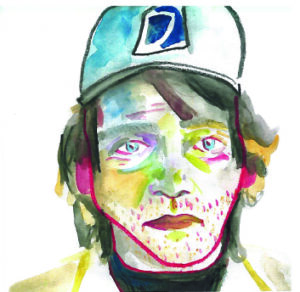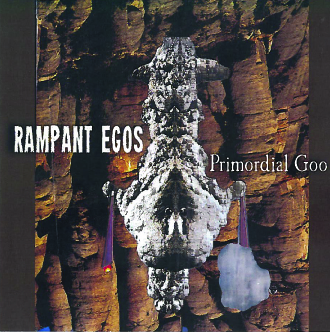The men behind this lengthy recording—75 minutes lengthy—are seminal New Mexican electronic musicians Dwight Loop, Arnold Bodmer and Justin Parker. As part of Rampant Egos, Loop speaks like Allen Ginsberg while sounding like Ken Nordine. That’s pretty cool and you’ve probably guessed by the description that many of the vocal tracks are spoken word. The compositions are heavy-handed though, with a profusion of samples, loops, noises and instruments so dense it might make some folks scream. Much of Primordial Goo isn’t self-indulgent though, just too long. At the last Sonic Reducer listening party, this album flat-out failed the 30 second “keep playing or reject now” test but if you hang in until track three, you’re rewarded with some very nice experimental electronic music. Safe money says Rampant Egos would be fun to see in performance, as long as the concert didn’t reach Bruce Springsteen lengths of duration.
Rabbit Wilde The Heartland (Self Released)
Bland music for those undiscerning ears who enjoy listening beside the wood stove. The band describes themselves as “indie-folk stomp music” but for my money there is way too much clapping and not enough stomping. It’s possible there are people who get down to this, but let’s not go to that party, there are too many children there. The tracks on The Heartland consistently invoke other, already-written songs and while that’s one of the perils of songwriting, this clichéd Americana band doesn’t have anything special about it. Sure, they’re talented and the female vocalist is … female, but the best accolade here is that the band kept the album short, something that makes it barely tolerable.
AJ Woods Movement in the Grass (Self Released)
Listening to AJ Woods’ latest release, it struck the listening party that his tunes are “more real” compared to anything Rabbit Wilde does. Rabbit Wilde may in fact be Americana music clones sent from planet D.A.C. 3000, where as AJ Woods is a bona fide earthling filled with all the pain and joy that goes with the human condition. Among all the young folk-rock bands around town, Woods has a style that is his own; he has a more personal and even underground sensibility that make his folk music accessible to rockers that hate folk music. Maybe it isn’t even folk music. Many of the songs on Movement in the Grass appear to be sourced from some painful experiences with women or death and others are meditations on nature (more sex and death!) but still, Movement isn’t a dark album. Though his voice could be compared to Neil Young and his vocal cadence and phrasing to Bill Callahan, Woods’ lyrical style, guitar playing and singing are his own—something that can’t often be said.






